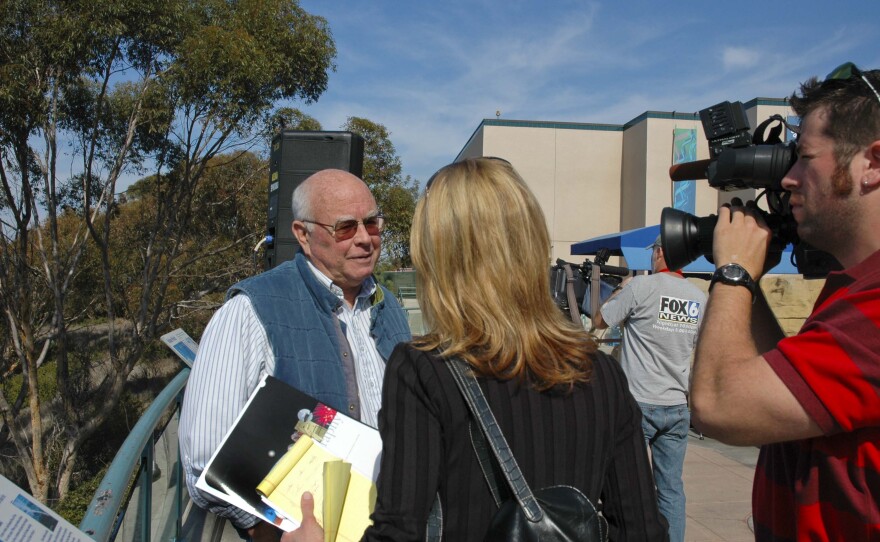Tim Barnett, a San Diego researcher who helped make present-day climate models accurate forecasting tools, has died.
Barnett, who was sickened with Parkinson’s disease in recent years, died Aug. 12 at his La Jolla home, family members said. He was 83.
Barnett, a no-nonsense scientist at the Scripps Institution of Oceanography, took a public stand in 1997 that put his professional reputation on the line. Months before drenching rains, floods and winds pummeled the entire state, he predicted El Niño conditions would bring damaging storms to California.
He made his predictions public in hopes that local officials could better prepare.
And Barnett was forced to defend his work on Capitol Hill, answering questions from lawmakers who doubted his climate research and openly questioned what was causing these climate extremes.
But his work was vindicated when the El Niño of 1997/1998 ended up being the strongest on record. His public warnings likely saved lives and limited property damage.
“You know, Tim was a bold guy,” said David Pierce, a fellow climate researcher at Scripps who worked with Barnett on tools to predict El Niños.
It was rare, at the time, to make sweeping predictions based on the existing climate models, but Barnett was confident. He dismissed the doubters and ended up making the right call.
“Tim was a very intuitive person,” Pierce said. “I mean, I felt like I was fairly good at these things. Tim could look at a sheet of plots from across the room and know that something was wrong with them.”
In 2005, Pierce and Barnett found that the ocean was absorbing higher than usual amounts of carbon dioxide and the pair predicted that human-fueled climate change would eventually lead to water shortages in the west.
Today, it is a widely accepted fact that diminishing water in the Colorado River basin and low water levels in Lake Mead are due to climate change.
Barnett’s confidence in his work came with a no-nonsense professional approach.
Willie Barnett, the second of three sons, said his dad had no patience for BS or bureaucrats.
“He measured people on the value of their input and the content of their character,” he said.
Barnett took his wife and three sons on regular camping excursions along the coast in Mexico. The trips allowed him to share his love of the ocean and the natural environment.

But eldest son Blake Barnett said sharing insights from his work did not mean it overshadowed his family.
“He always made time for the family,” he said. “And coming down and watching him play volleyball for years at lunch was a great example of that.”
Barnett frequently dropped his kids off at the beach before work and welcomed them in his office when they came by looking for a snack.
Barnett’s family is planning a private memorial service.







